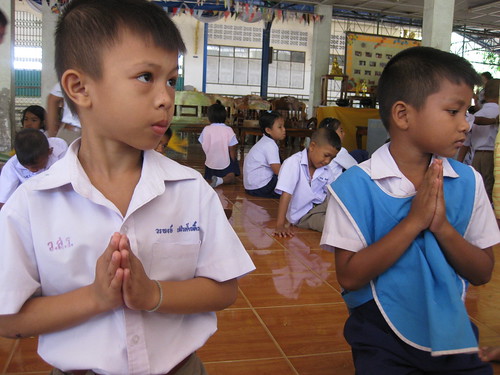 Calls for security for teachers have echoed across Thailand after a roadside bomb on July 24th killed two teachers and wounded another in southern Narathiwat Province. Since 2004, Malay Muslim separatist groups in the southern provinces of Thailand have conducted periodic attacks on teachers, who are seen as representatives of the Thai government.
Calls for security for teachers have echoed across Thailand after a roadside bomb on July 24th killed two teachers and wounded another in southern Narathiwat Province. Since 2004, Malay Muslim separatist groups in the southern provinces of Thailand have conducted periodic attacks on teachers, who are seen as representatives of the Thai government.
According to Human Rights Watch, almost 160 teachers and education personnel have been killed by separatist insurgents. Attacks sometimes occur in classrooms or in front of students. Buddhist Thai teachers seem to be especially targeted. No group has claimed responsibility for the most recent attack.
In response to these attacks, Thai Education Minister Chaturon Chaisang announced, “The best thing we need to do for teachers and workers in the education field is to strengthen security measures.”
Over the past year, dozens of schools have been closed, sometimes for weeks, following attacks. Students in some provinces are having trouble catching up once their lessons resume.
As a result of the attacks, many teachers have been leaving the profession. Often administrators struggle to find qualified replacements. In addition to the danger, teacher salaries are low in the southern provinces, and many teacher replacements are underqualified and recruited on temporary contracts.
Despite the ongoing conflict, many teachers still remain at their post out of a sense of duty to the students they teach. Teachers fear there will be no one left to educate the children if they leave.
“That is the incentive for both the Buddhist Thai and Malay Muslim teachers to continue working,” says Sunai Phasuk, a researcher for Human Rights Watch. “That shows the commitment of those teachers who want to provide education to the children even though some of them have been at schools that have been attacked so many times before.”
Creative Commons Love: Matt Koltermann on Flickr.com

















